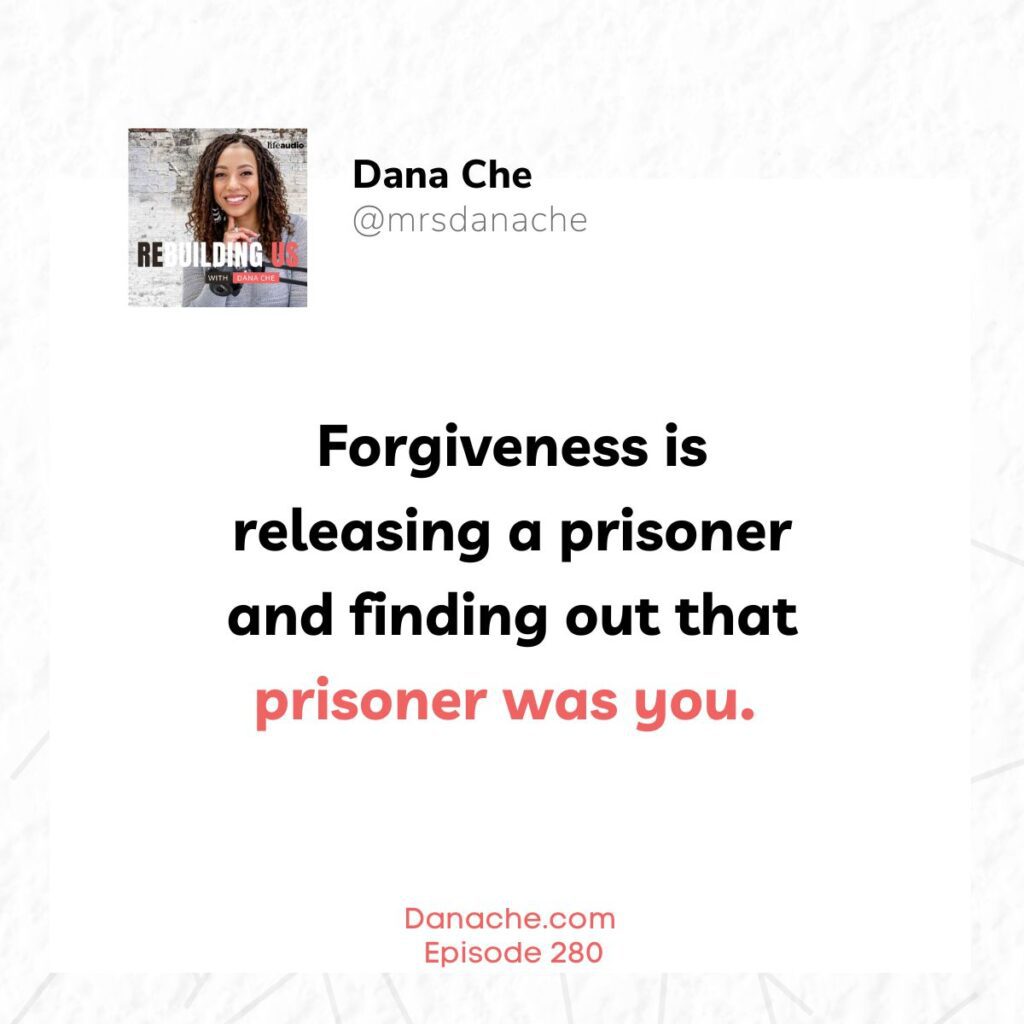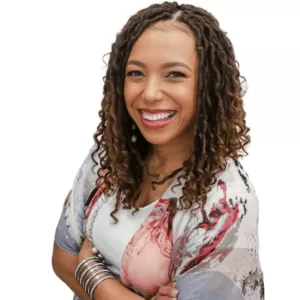Finding Forgiveness: The Road Back to You
If you’ve ever struggled to forgive, you’ll find the hope and help you’re looking for in one of my most inspirational episodes yet. It’s time you find the will to forgive and, in the process, find yourself again. When I was healing from infidelity, I found it difficult to lay down my need to be justified and have my pain validated. Because of this, I kept myself stuck in a cycle of pain, bitterness, and unforgiveness. But when I learned how to release the pain, I realized peace and true joy were waiting for me on the other side. I’ve had to repeat this process in my life with different people, but the results are always the same—the way back to you, the whole, healed you, is only found on the path of forgiveness.
Understanding Forgiveness
In its simplest terms, forgiveness is releasing someone from a debt they owe you. When someone hurts, betrays, or offends you, it creates a sense of debt—whether it’s an apology, a committed relationship, or even money. Forgiveness is the conscious choice to release that debt, even if the person never apologizes or acknowledges their wrongdoing.
While forgiveness is simple in definition, it’s far from easy. This distinction is critical: Forgiveness is simple, but it’s hard to do. This complexity is partly because our innate sense of justice demands payback for wrongs committed against us, which makes the act of forgiveness feel contradictory to our very nature.
Our innate human sense of justice makes forgiveness particularly challenging. Rooted deep within us from a young age, this sense of justice manifests strongly when we’ve been wronged. However, holding onto grudges or waiting for someone to “sufficiently pay their debt” usually leaves us in a perpetual state of hurt and anger.
What complicates matters more is the fear that forgiving someone will mean they’ve gotten away with their actions. Justice demands punishment, and letting go feels like saying it was okay, which it never was. However, finding peace and wholeness necessitates forgiving for your own sake, not for theirs.
Your Pain is Valid
When we are hurt, we often seek validation for our pain. I remember yearning for someone to acknowledge my hurt and betrayal, but it seemed no one really did. I didn’t want sermons or Biblical quotes; I wanted someone to validate the pain of what I’d gone through, my emotions, and my loss, and to tell me that what happened was not okay. What happens if nobody else tells us that this thing sucked, that this thing hurt, that it wasn’t right, we’re going to tell ourselves that. Lacking this validation can lead us to hold onto unforgiveness as a form of self-validation. By releasing the pain and offering ourselves the validation we seek, we free ourselves from being prisoners of our own unforgiveness.
Revisiting the Pain
Forgiveness requires confronting the hurt head-on rather than glossing over it. This process is like going back to the scene of the crime, acknowledging the depth of the pain, and then choosing to let it go. This is far from an easy task, but it’s a necessary step toward authentic forgiveness.
One of my clients, we’ll call her “Angela,” came to me in a state of depression and anger due to her husband’s betrayal. Angela wouldn’t even make eye contact. Despite the odds, as we revisited her pain, I encouraged Angela to begin the process of forgiveness. Remarkably, within weeks, Angela’s demeanor changed dramatically. She looked lighter, smiled more, and her relationship with her husband improved. The catalyst? Angela made the choice to forgive. This transformation proves that forgiveness, though simple in concept and difficult in execution, can have powerful results.
Spiritual Perspective on Forgiveness
For those who are committed to walking in the principles of the Christian faith, forgiveness holds an added dimension. Matthew 6:14-15 teaches that withholding forgiveness impacts our relationship with God. This spiritual mandate makes the act of forgiving even more imperative. I realized my relationship with God was on the line here if I chose not to forgive. Spiritual well-being can provide added motivation for forgiveness.
Forgiveness is a Process
Forgiveness is both a decision and a process. The initial decision is a crucial first step, but walking out that decision involves learning new skills and gaining support. I discuss this at length in my coaching and Thrive Wives group, stressing the necessity of collective support and accountability in this journey.
Community and Accountability
My healing journey wouldn’t have been complete, and it actually gained momentum when I joined a support group of women dealing with similar issues. This community validated my pain and held me accountable. This is why it is important to find a supportive community that can help steer you through the tumultuous waters of forgiveness.
As James 5:16 prompts, “Confess your faults to one another and pray for one another, that you may be healed.” I believe that community-based accountability can foster genuine healing.
If you want to be whole, healthy, and healed, the journey to finding forgiveness is yours for the taking.You just need to take that first step. It could be the decision that leads you back to yourself.
Links Mentioned in this Episode:
Take my “How Connected a Partner Are You Quiz”
Wives, register for our upcoming Wives Workshop on forgiveness and more.
ALSO LISTEN TO: The Power of Forgiveness in Relationships
**Like the show? Please give it a 5-star rating, and I’d love it if you’d write a review! **
Support the show: https://danache.com/donations/support-the-show/
Discover more Christian podcasts at lifeaudio.com and inquire about advertising opportunities at lifeaudio.com/contact-us.



